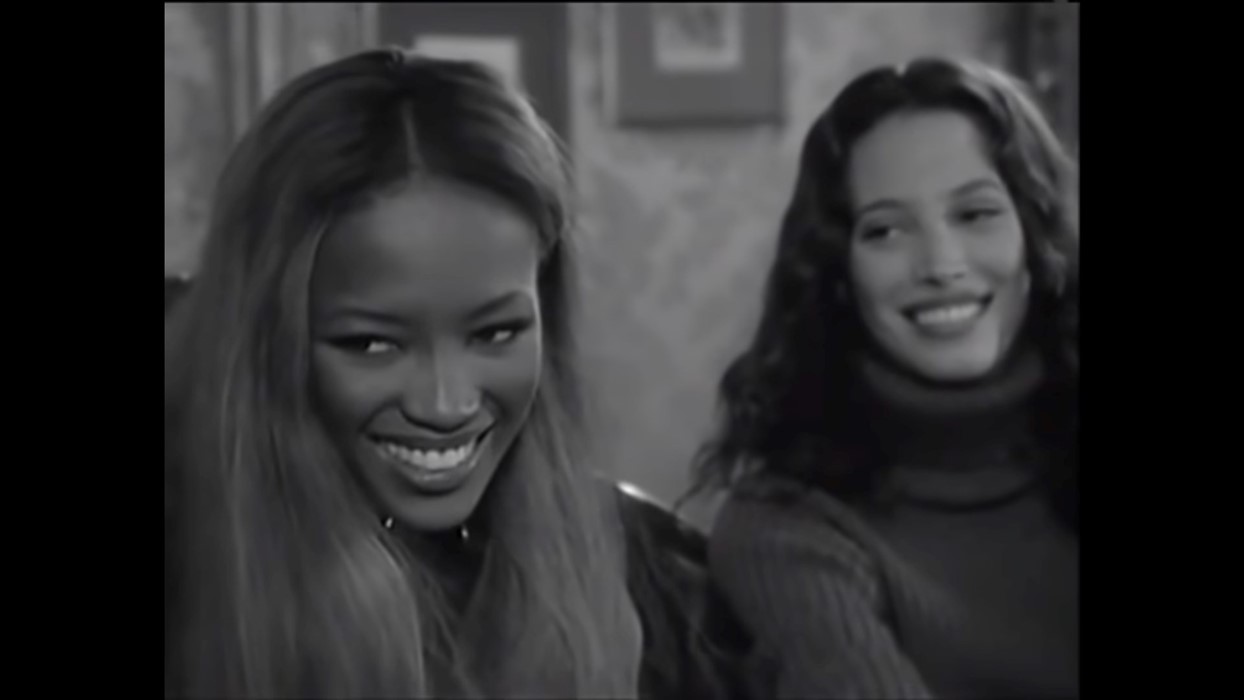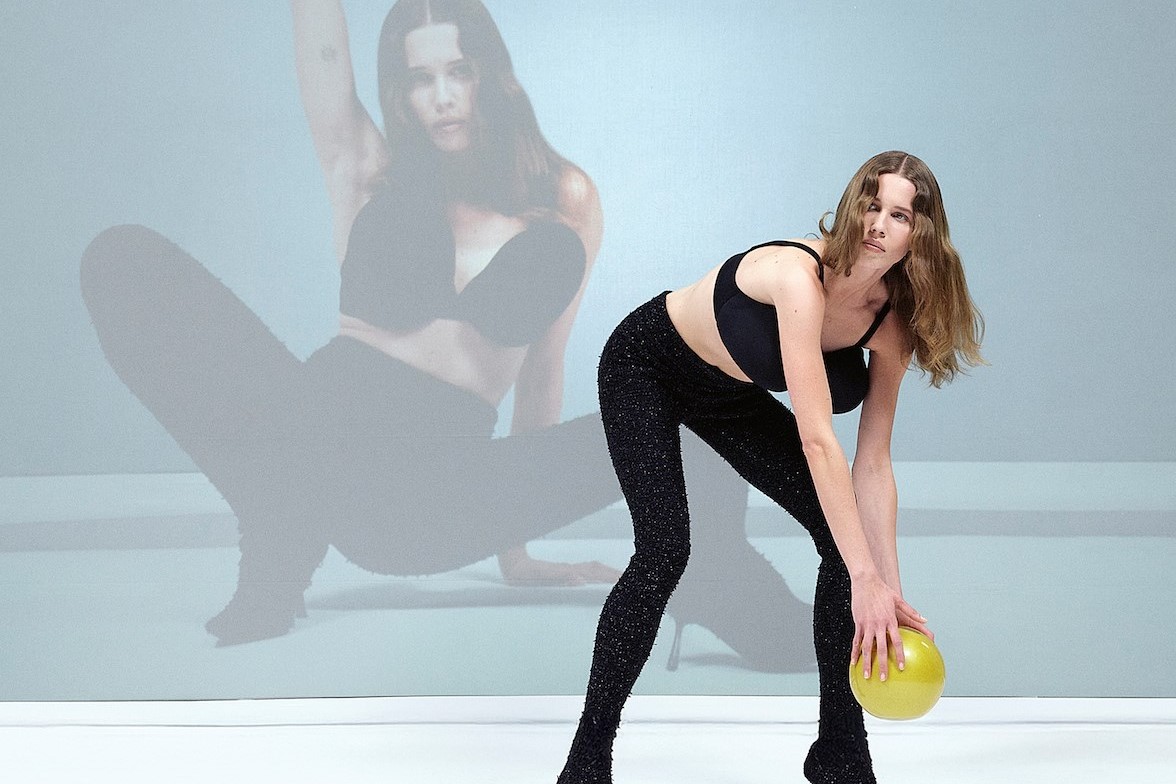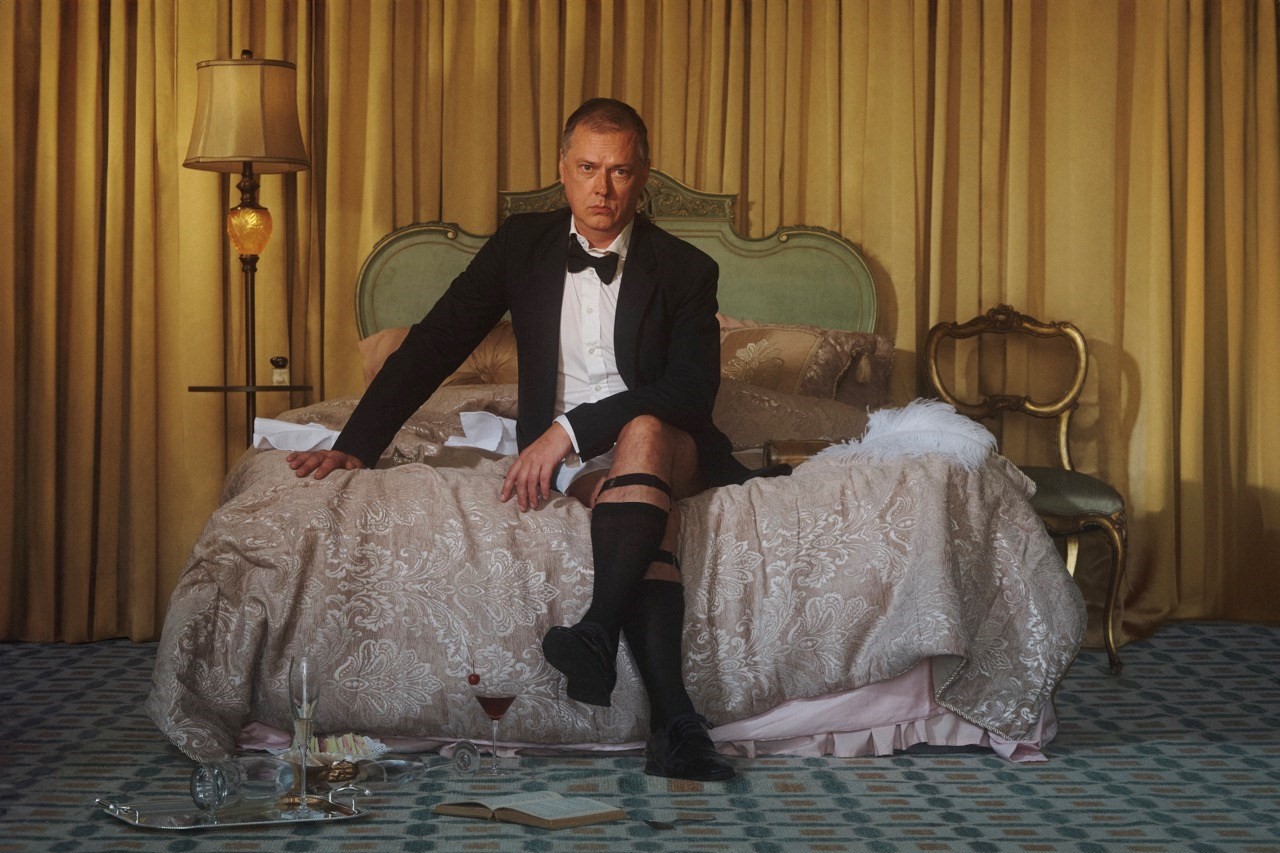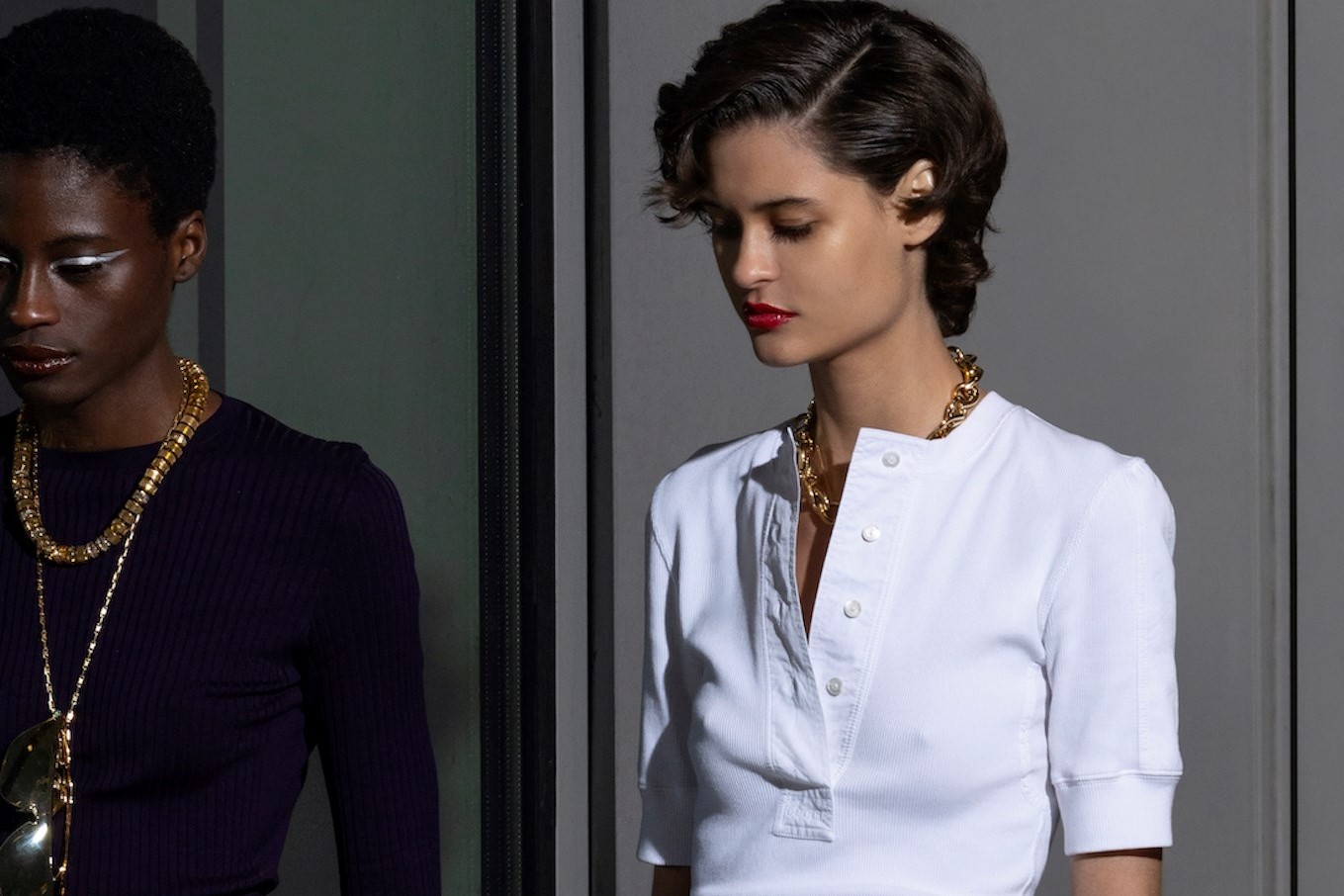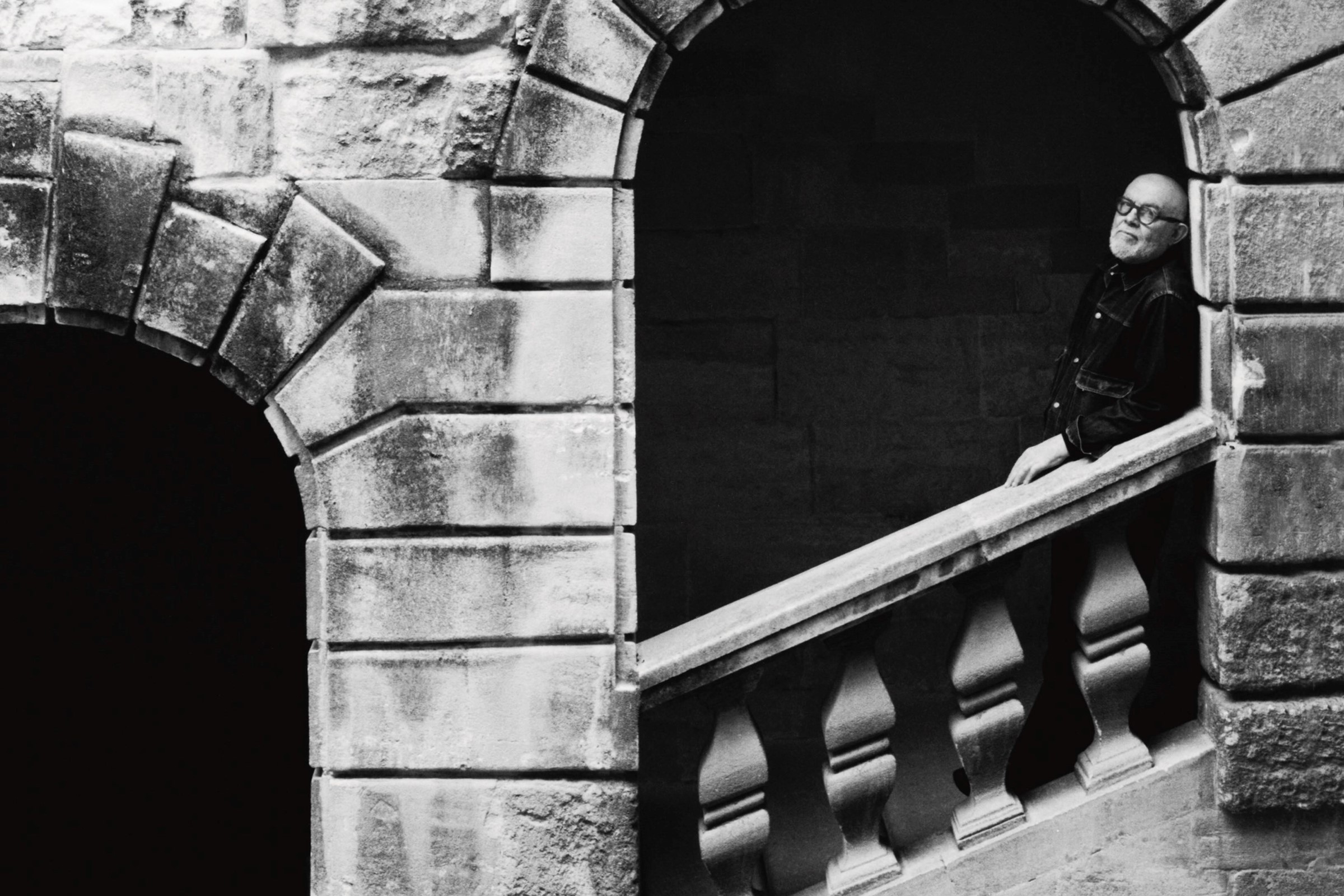25 years on, Robert Leacock’s 1995 documentary Catwalk remains the ultimate fashion film
Christy Turlington is running late for Galliano. The camera tracks behind her as she ducks between clothing racks and dodges backstage personnel before, finally, greeting the designer with a double kiss. She’s wearing a silk crepe suit.
This scene is part of a middling, near-forgettable sequence from Robert Leacock’s 1995 documentary Catwalk, which follows the American supermodel from New York to Paris during the Spring/Summer 1994 season. The aforementioned scene is one of the film’s many transitory moments, filmed in black and white, easily overshadowed by the full-colour Galliano spectacular that follows, all 90s runway theatrics, dreamy hoop skirts and Kate Moss charging down the runway to a remixed Flight of the Valkyries.
What makes this particularly quiet scene stick is this: Turlington’s suit. Its design isn’t extraordinary by any means – a simple blazer, without lapels, and straight-cut slacks. But it’s immaculate. As Turlington rushes down the corridor, her trousers flutter, her blazer’s padded shoulders sit just so – you can almost feel the suit’s lush silk. It’s so simple and yet just as glamorous as any Galliano creation.
Even among the film’s fashion week fanfare, it’s these liminal, off-duty moments (and their accompanying off-duty outfits) that are, perhaps now more than ever, among Catwalk’s most captivating offerings.
The recent convergence of fashion’s perennial 90s nostalgia with the renaissance of the OG supermodels has made authentic photos of the era’s off-duty looks a red-hot commodity. (Think: myriad social media fanpages and the KarJenners copying Naomi Campbell’s most iconic looks.) Mix in a dash of scarcity and a sprinkle of enigma: these vintage street-style images are relegated to only a handful of paparazzi shots or are now lost to the faded pages of bygone print periodicals – far removed from the steady stream of stories and snaps shared by Gen Z’s Insta-supers, usually only an internet connection and a finger swipe away. Like retroactive FOMO.
In Catwalk, Leacock’s camera giving us an unprecedented, fly-on-the-wall glimpse of the real lives and real looks of the 90s’ chicest women – the hotel rooms, the backseats of company cars, the model apartments, the ‘oh, this? I just threw it on’. And Turlington’s between-show looks are just this, a lesson in sprezzatura. A luxe effortlessness that is at once refreshingly of-its-time – a far cry from the celebrity stylists and sponcon of today’s supermodel set – and yet current, à la the buttoned insouciance of S/S20’s The Row.
The film begins as Turlington lands in Milan, with Naomi Campbell and an extremely fresh-faced Kate Moss, for Versace – the show that introduced the house’s iconic safety-pinned bodycon dresses. The two bid farewell to Moss, who has a last-minute fitting – “You’ll be alright on your own!” – with a double hug and a cheek pinch before hopping in a car for a rainy drive into the city. Turlington’s wearing a ribbed boatneck, loose light-wash jeans, and a blazer of the constructed and heavy-shouldered variety.
Following Jean Paul Gaultier’s watershed Les Tatouages show – the debut of the French designer’s now-iconic patterned mesh garb – Turlington returns to her Paris hotel room, sans Campbell. In one of the film’s rare, introspective moments, the model opens a stack of letters on her bed before moving to the marble-walled bathroom to remove the day’s make-up. The ankle-length skirt of her Khaite-esque puff-sleeve dress trails behind her. As she Q-tips the mascara from her eyelashes, Leacock asks her about her love life. She splashes her face with water from the gold, swan-shaped faucet and explains, wistfully: “When you travel, you miss the person you’re with. If you don’t have anybody, then you don’t miss anybody.”
And in between: she naps backstage in a fitted wool cardigan; shops Hermès Birkins on Faubourg Saint-Honoré and lunches with Alaïa in a T-shirt and jeans, cardigan tied around her waist; she fumbles her French ordering a café au lait in a fitted denim jacket.
On her last night in Paris, in a nondescript black turtleneck – perhaps 90s Prada but could pass for The Row – and dark-wash bootcut jeans, Turlington attends a house party at Carla Bruni’s Hausmann-style apartment. Turlington and Campbell dance in unison, bobbing their heads to Britpop hit Don’t Call Me Baby while Bruni struts down the hallway, modelling a fedora. The mood is effervescent.
She touches down in New York and, after a wacky fitting with Isaac Mizrahi (“Christy’s very sensitive about her feet. You’re a Capricorn, right? Makes sense”) makes a fast food pit stop with Campbell. Turlington’s wearing a sleek leather trench – very Kwaidan Editions. Campbell is all Saks Potts in the movie’s biggest off-duty moment: an utterly fabulous white mink-collared and -cuffed jacket.
The film closes as she has her portrait painted by Francesco Clemente to serene piano music and muted traffic sounds. Her new bangs haven’t quite grown in yet. Her navy T-shirt, oversized in a true borrowed-from-the-mens-section cut, is belted by the waist of her high-rise trousers. She smiles, pleased, as Clemente holds the painted face up to her own.
Now back to Turlington’s silk suit. The kind of outfit – like most of her Catwalk looks – designed to deflect, rather than demand, attention. This is the real glamour of Catwalk. That among all the covetable designer gear from New York to Paris, and back again – a logoed Hermès scarf, a Galliano corset, or one of the Gaultier tattoo tops favoured by today’s supermodels – Turlington chose the quietly luxury of a silk suit.
